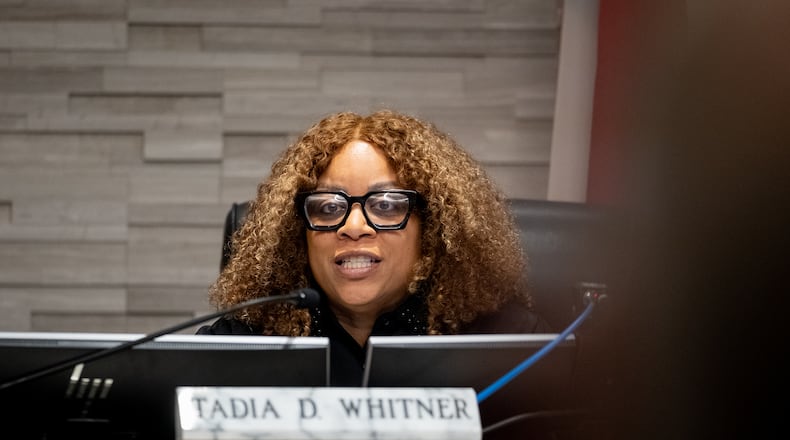Gwinnett County Superior Court Judge Tadia Whitner dismissed two cases Monday that challenged the creation of the city of Mulberry, ruling that the resident who sued, Stephen Hughes, did not have legal standing.
Hughes said he plans to appeal.
“I was disappointed in the ruling but I appreciate the judge listening to all sides of the case,” he said.
Hughes filed the lawsuits in June in Gwinnett. One named the county, seeking a ruling that would prohibit the government from participating in the new city’s transition process. Another named the county’s elections board and supervisor in an attempt to halt Mulberry city council elections scheduled for November.
Gwinnett County took Hughes’ side in court. Attorneys for Hughes and the county argued that the Mulberry charter that voters approved in May is unconstitutional because it prohibits the city council from imposing a property tax, lists the services the city must provide and can only be changed through a separate referendum. Those restrictions infringe on the city’s home rule powers under state law, the attorneys said.
The legislation that submitted the charter to voters was a local law, but the Legislature can’t set taxation laws that apply to some cities but not others, the attorneys said.
Hughes said he is concerned the new city could tax him and pass a law that limits his beekeeping. He also said he is uncertain about whether to vote in the city council elections because he does not believe the new city is legal.
The state attorney general’s office and Citizens for Mulberry, a pro-cityhood group, argued in favor of the new city. Their attorneys said voters, not the Legislature, ultimately created the city and that Hughes didn’t have standing to sue because he was not experiencing any uncertainty that the court could resolve. Gwinnett County could also raise his taxes or pass an ordinance against beekeeping, they said.
Michael Coker, president of Citizens for Mulberry and a city council candidate, praised Whitner’s ruling.
“The citizens spoke,” Coker said. “The judge listened to us. The election is moving forward.”
Mulberry is scheduled for incorporation Jan. 1, when the new city council is sworn in. It would be Gwinnett’s largest city by land area and second-largest by population, with about 41,000 residents in a 26-square-mile swath of the county’s northeast that includes Little Mulberry Park and the affluent Hamilton Mill subdivision. There is no multifamily housing in Mulberry’s boundaries.
Hughes also sued the state of Georgia last month in Fulton County Superior Court, seeking to declare Mulberry unconstitutional and prevent Gov. Brian Kemp from appointing a transition team for the new city, which Kemp subsequently did. The Fulton case was put on hold pending the results of the Gwinnett cases.
About the Author
Keep Reading
The Latest
Featured



